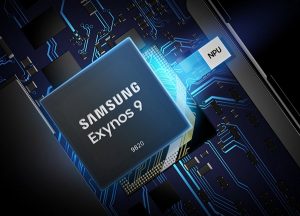Samsung Electronics is the latest mobile chip manufacturer to add a dedicated neural processing engine (NPU) to speed up Artificial Intelligence (AI) performance of its system-on-chips used in high-end mobiles. Samsung announced last week that its Exynos 9 Series 9820 system on chip (SoC), which will most probably be used in its upcoming Galaxy S10, will feature a dedicated NPU that is claimed would deliver up to seven times faster AI performance than the Series 9810 which was used on the S9.
The dedicated NPU is expected to speed up tasks like image processing and Augmented Reality. The first chip designer to announce an SoC with an NPU was Huawei with their Kirin 970 chip last year; this was followed by Apple with its A11 Bionic chipset. Both vendors have updated those chips this year, with Huawei coming out with Kirin 980 and Apple following suit with A12 chips.
Qualcomm, whose Snapdragon 845 chip is found in the US version of the Galaxy S9 and virtually every Android flagship around the world beyond Huawei’s, does not yet make dedicated AI-branded hardware, though it cited the 845’s combination of DSP, CPU, and GPU as delivering three times faster AI performance than the preceding 835.
Elsewhere, Samsung is claiming the Exynos 9820’s fourth-generation custom CPU cores will provide a 20-percent boost to conventional single-core performance and 15-percent in multi-core or a 40-percent improvement in power efficiency. The GPU uses ARM’s new Mali G76 cores, first seen in the Kirin 980, for what is claimed to be 40 percent greater performance or 35 percent better power efficiency.
Samsung revealed that the Exynos 9820 will be ready for mass production by the end of the year, which means it will be right on time for the rumored launch of the Galaxy S10 in late February. The question is now whether Qualcomm will follow the rest of the industry in focusing on AI for its 845 successor.

















